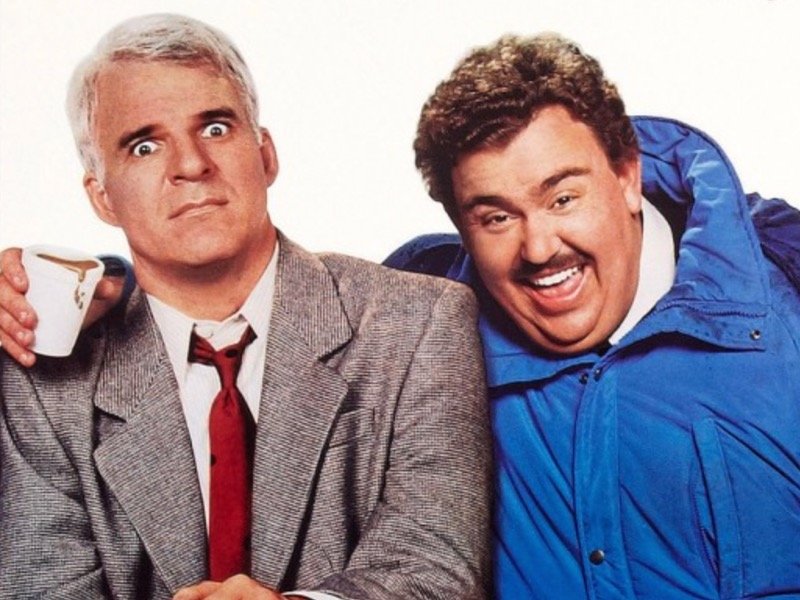In case this point gets lost over the next 791 words, let me put it right up front: "Blood Brother" is a good movie. It’s impeccably made, and it tells a powerful, often devastating story with honesty and energy. It’s just the wrong story.
Director Steve Hoover’s documentary – the closing night selection for the Milwaukee Film Festival and a big winner at Sundance back in January – focuses in on Rocky Braat, a 20-something Pittsburgh native looking for a spark for his life. Taking inventory on himself, he finds a person of troubled family relationships and few real connections (other than his best friend, Hoover). In his search for some meaning, Rocky heads off on a trip to India.
While there, he finds his purpose in the form of a hostel for young Indian children afflicted with AIDS. He becomes incredibly dedicated to the facility and the children housed within it, who need all of the help and love they can get. As an incidental reward, Rocky discovers the unconditionally loving family and community that he never had before.
After a quick return to the States, he heads back, and the plan is to stay for good this time. Hoover comes in tow, capturing Rocky’s new-found mission in the hopes of sharing it with others – and making sense of his best friend’s decision to abandon the comforts of his native country for a life in hot, often unsanitary conditions (some of the locals aren’t too fond of their new American neighbor), doomed to be surrounded daily by equal doses of joy and pain.
Rocky makes for a nice subject. He’s a kid at heart, energetic and earnest about his love for the kids and the country he now calls home. However, there are terrific subjects in Steve Hoover’s documentary: the children, fighting their terrible circumstances with both bravery and youthful glee. They’re just stuck playing co-star.
To be fair to Hoover, I don’t think this is pandering or vindictive. It’s not as egregiously blatant as in some films like "The Blind Side" (which pushed its black lead character as far out of his own story as possible) or "The Impossible" (which gave the tsunami disaster in Thailand a thorough whitewashing). Both Hoover and Braat clearly have deep affection and concern for the children, and Hoover even noted at the film festival screening that the money "Blood Brother" makes is going toward the hostel and improving the lives of the kids and others in the region.
Hoover certainly doesn’t all-out forget the children. Viewers get to meet and bond with a couple of the children, mostly notably a young boy named Surya. A few also get to tell the stories of their upbringings and share the details of their lives, both the fun (a birthday celebration where almost all of the cake frosting is worn instead of eaten) and the heartbreaking (taking a massive ART tablet that keeps the disease at bay, though with unpredictable side effects).
"Blood Brother" never completely loses sight of the kids’ tragic struggle, making the audience feel the weight and massive costs. The film opens on Rocky chaotically trying to get a dying young girl to the hospital, her father uncertain what to do. Later, in one of the film’s most harrowing part, Surya suffers a serious scare that leaves him in critical care, covered in scabs and unable to open his eyes. Both are painfully unflinching sequences, leaving both the film’s leads – and the audience – overwhelmed by the emotional toll of the children’s battle.
The filmmakers give the fight its due, but it merits being more the focus of the documentary. Somehow, it doesn’t. Instead, the balance tips in favor of Rocky’s story, with the dying, HIV-stricken children playing side characters – or plot devices, if you want to be extra-cynical, helping the white Westerner find his purpose. It’s a lot of how their struggles impact him, rather than how they impact the kids themselves and their families.
Rocky’s love life and eventual marriage get as much, if not more, attention than the children, fighting to stay alive long enough to even think about marriage. At one point, Steve pesters Rocky about a potential girlfriend right after the kids talk about their ailments. It almost works as accidental social commentary. Almost.
Even if the misguided focus sticks in my craw, "Blood Brother" plays better than the last couple paragraphs sound for the most part. It’s not as though Rocky doesn’t have a good story and struggles to fight, with his family and his own self (even Hoover does a bit as well). It’s both heart-wrenching and heartwarming, and it plays quite honest. I think if the filmmakers were a bit more honest with themselves, though, they’d likely realize they may have accidentally overshadowed those they want to help.
"Blood Brother": ***
As much as it is a gigantic cliché to say that one has always had a passion for film, Matt Mueller has always had a passion for film. Whether it was bringing in the latest movie reviews for his first grade show-and-tell or writing film reviews for the St. Norbert College Times as a high school student, Matt is way too obsessed with movies for his own good.
When he's not writing about the latest blockbuster or talking much too glowingly about "Piranha 3D," Matt can probably be found watching literally any sport (minus cricket) or working at - get this - a local movie theater. Or watching a movie. Yeah, he's probably watching a movie.







